Ruopeng Xu
Fluid Antenna Relay Assisted Communication Systems Through Antenna Location Optimization
Mar 31, 2024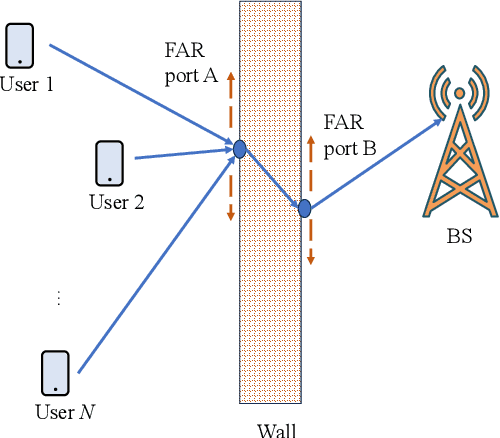
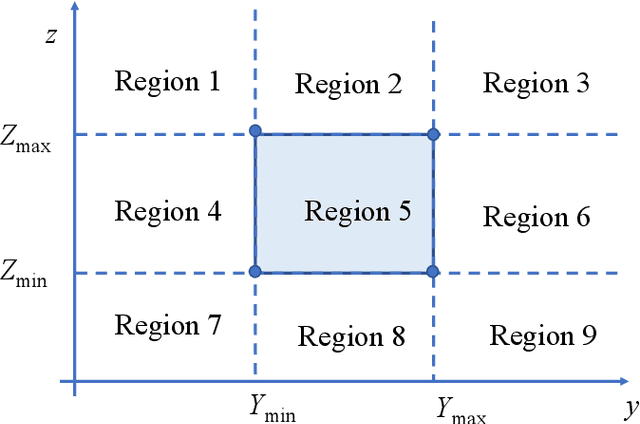
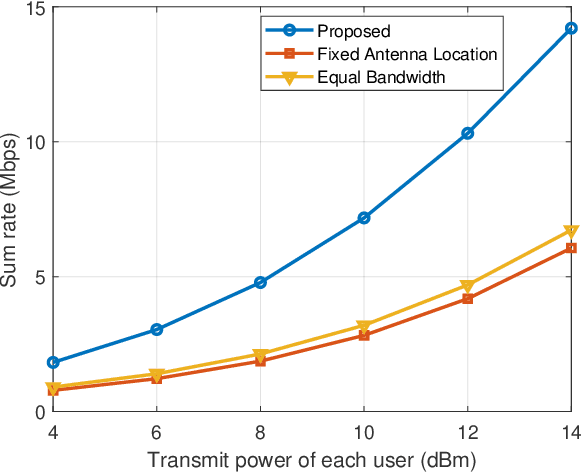
Abstract:In this paper, we investigate the problem of resource allocation for fluid antenna relay (FAR) system with antenna location optimization. In the considered model, each user transmits information to a base station (BS) with help of FAR. The antenna location of the FAR is flexible and can be adapted to dynamic location distribution of the users. We formulate a sum rate maximization problem through jointly optimizing the antenna location and bandwidth allocation with meeting the minimum rate requirements, total bandwidth budget, and feasible antenna region constraints. To solve this problem, we obtain the optimal bandwidth in closed form. Based on the optimal bandwidth, the original problem is reduced to the antenna location optimization problem and an alternating algorithm is proposed. Simulation results verify the effectiveness of the proposed algorithm and the sum rate can be increased by up to 125% compared to the conventional schemes.
Resource Allocation for Green Probabilistic Semantic Communication with Rate Splitting
Mar 31, 2024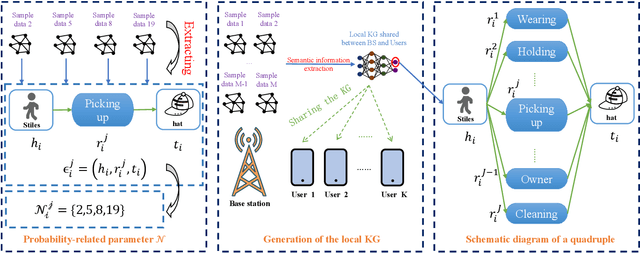
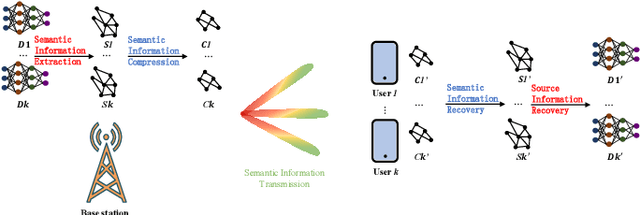
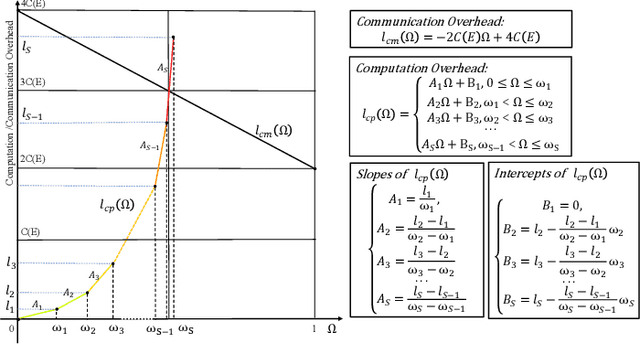
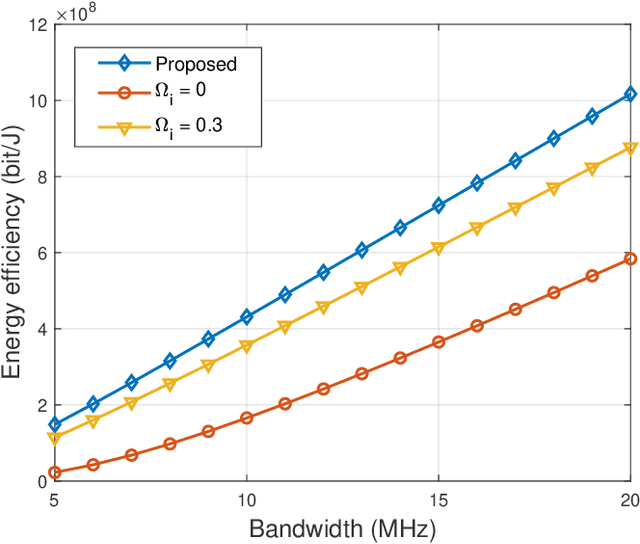
Abstract:In this paper, the energy efficient design for probabilistic semantic communication (PSC) system with rate splitting multiple access (RSMA) is investigated. Basic principles are first reviewed to show how the PSC system works to extract, compress and transmit the semantic information in a task-oriented transmission. Subsequently, the process of how multiuser semantic information can be represented, compressed and transmitted with RSMA is presented, during which the semantic compression ratio (SCR) is introduced to directly measure the computation overhead in a transmission task, and communication overhead is indirectly described as well. Hence, the problem of wireless resource allocation jointly considering the computation and communication consumption for the PSC system with RSMA is investigated. Both conventional wireless resource constraints and unique constraints on semantic communication are considered to maximize the energy efficiency (EE). Simulation results verify the effectiveness of the proposed scheme.
 Add to Chrome
Add to Chrome Add to Firefox
Add to Firefox Add to Edge
Add to Edge